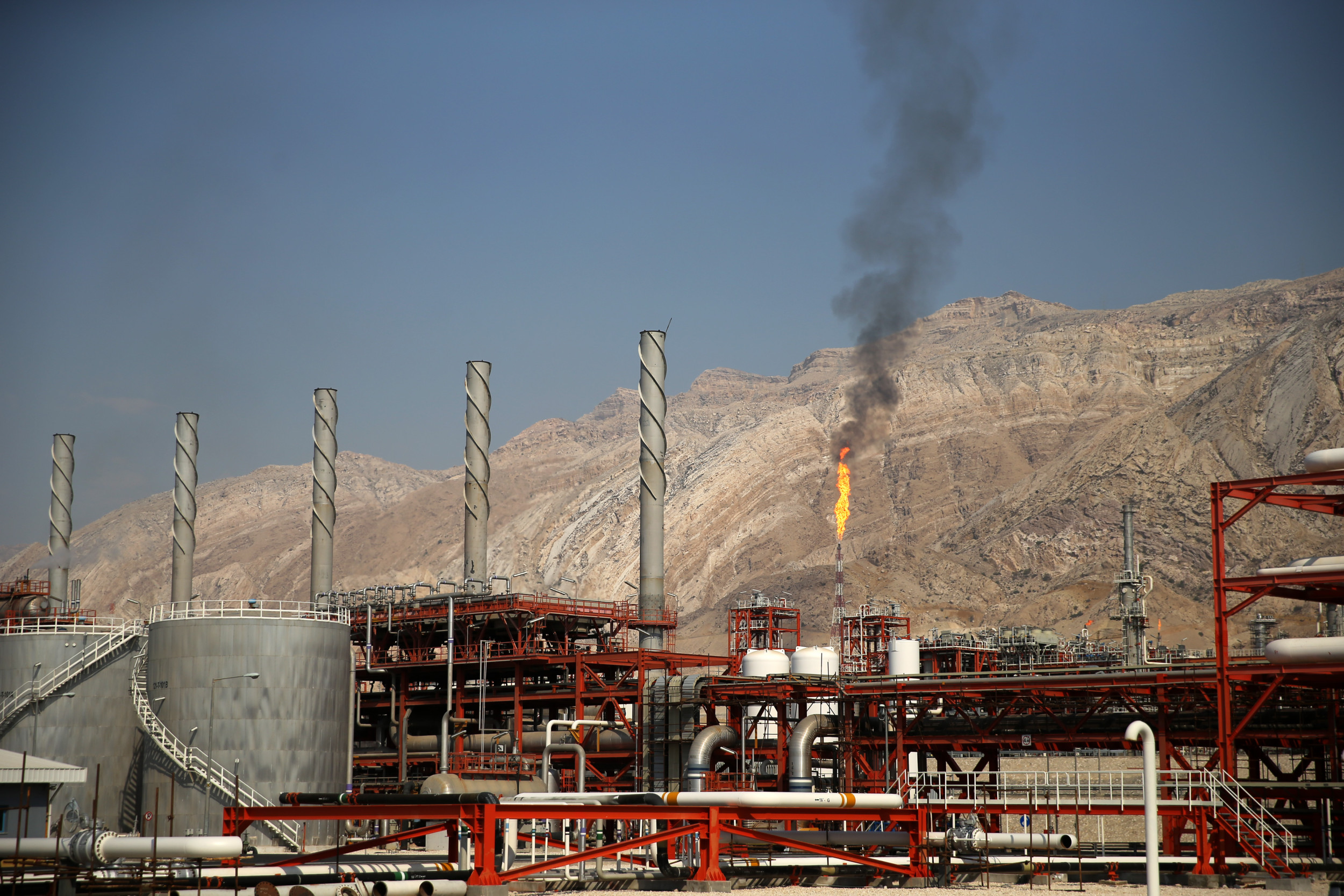
The U.S . increased its sanctions on Iran's shadow fleet on Tuesday, according to the Department of the Treasury.
The U.S. has imposed new sanctions on 35 entities and vessels that play "a critical role in transporting illicit Iranian petroleum to foreign markets," which generate revenues that fund Iran's resources for its nuclear program, as well as aid in the development of advanced drones and missiles, and provide financial support for the activities of regional proxies.

Iran's shadow fleet is a network of tankers and ship management firms that transport petroleum to its overseas customers using false documentation, manipulating vessel tracking systems, and changing the names and flags of vessels. Newsweek reached out to the Ministry of Foreign Affairs of the Islamic Republic of Iran for comment via email. Newsweek also reached out to the U.
S. Department of the Treasury outside of business hours. Vessels and ship management firms that are part of Iran's shadow fleet subject to new U.
S. sanctions are located in the United Arab Emirates, Panama, India, Liberia, China and elsewhere. In total, the U.
S. imposed new sanctions on 21 vessels and 14 ship management companies yesterday. In a statement, Acting Under Secretary for Terrorism and Financial Intelligence Bradley T.
Smith said, "Iran continues to funnel revenues from its petroleum trade toward the development of its nuclear program, proliferation of its ballistic missile and unmanned aerial vehicle technology, and sponsorship of its regional terrorist proxies, risking further destabilizing the region. "The United States remains committed to disrupting the shadow fleet of vessels and operators that facilitate these illicit activities, using the full range of our tools and authorities." These new sanctions may have significant ramifications on Iran's economy, as the U.
S. Energy Information Administration estimated that Iran earned approximately $53 billion in net oil revenue exports in 2023. Moreover, Iran sold $144 billion worth of petroleum and petroleum products from 2021 to 2023, and petroleum product exports have increased by more than 50 percent from 2020 to 2023, according to the Foundation for Defense of Democracies.
These new sanctions against 35 companies and vessels are not the only recent sanctions imposed against Iran. The U.S.
also imposed sanctions on Iran's "ghost fleet" of ships and companies in October. The sanctions imposed on the " ghost fleet " followed Iran's attack on Israel on October 1 and were aimed at targeting ships and companies internationally that hide and transport Iranian oil to buyers in Asia. The EU and the U.
K. also imposed sanctions on Iran in November as punishment for Iran sending ballistic missiles and drones to Russia to aid Moscow in the war with Ukraine. In implementing these new sanctions, the EU and the U.
K. targeted vessels, cargo ships and ports involved in the transportation of Iranian-made military supplies to Russia..










